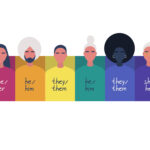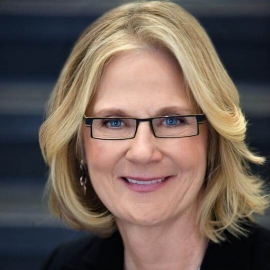Welcome to the Facilitator Guide!
We are so glad that you are here to find some tips about how to facilitate a group of people who are going through the Anti-Racism and Allyship 7 Day Journey together. We thank you for taking on this role!
Facilitation is a skill that you can develop and hone over time, and it is one of the most important and transferable skills you can work on. Good facilitators have taken the time to engage deeply with the material, and are passionate about sharing it with others. They are also understanding, empathetic, and open to the experiences of others. They are apt observers of group dynamics, and are able to intervene when a conversation veers off track.
You might be facilitating the Anti-Racism and Allyship 7 Day Journey in a multitude of environments, and so we encourage you to prepare well for what is appropriate for your group. It is essential that you enter these spaces with self-awareness, cultural competence, and sensitivity to others’ experience. Having the ability to intervene where needed is going to be key in these conversations – we are all still learning and growing, and vocalizing that can be one of the most difficult aspects of this journey.
Here are some general facilitation tips that the three of us have used over the years as educators and facilitators. We hope these will help you as you begin to facilitate your group as they work through the Anti-Racism and Allyship 7 Day Journey.
- Set group norms and ground rules at the first meeting. This could mean that you set the norms as a group, or that you establish them as the facilitator. These norms might consist of things like: listening respectfully, not interrupting others, asking questions thoughtfully, and receiving questions without getting defensive, and more. Other norms that we often suggest include:
- Engage in this journey with an expectation of good will for yourself and each other.
- Embrace your own and each other’s discomfort. These topics are often quite emotional and often make it difficult to hear and be heard.
- Acknowledge that each of us is here to learn and that learning is difficult
- Give the benefit of the doubt. We are not all as articulate as we might wish, especially when discussing these topics. Ask for clarification. Gently question assumptions.
- Be present (especially if virtual, disconnect from other devices with the exception of the meeting platform).
- If someone is off-topic, it is alright to put a pin in what they are sharing and redirect them back to the discussion at hand
- Provide an agenda before the group meets each time so that they know what to expect. Be clear about what you would like to accomplish at the meeting, and give participants questions for reflection prior to the session.
- If your group is virtual, please be sure that everyone has their name on their screen, so that you can all use one another’s names. Consider also asking people to share their pronouns. If you are meeting in person, use name tags or name plates.
- Make sure to call people in the order in which they raised their hands. This is often quite easy in a virtual environment, since many platforms provide this. But, if you are meeting in person, keep a list so that everyone speaks in their turn.
- Something that helps us approach facilitation is by coming from a place of learning and growing as individuals ourselves. It often helps to be transparent about that approach and to say that you are there to travel alongside the group as a learning partner on this journey.
- We recommend that you complete the journey for yourself first before attempting to facilitate others’ in a group. It will be paramount that you are familiar with the content, videos, articles, and additional resources, so that when questions come up around each day, you are well-equipped to answer them.
Suggested Questions for the Anti-Racism and Allyship 7 Day Journey
Day 1: Taking the Pledge and Thinking about Race
- Share your 6 word sentence about your experience and engagement with race with others in your group.
- Did you submit your story to the Race Card Project? Why or why not?
- Talk about the Race in America video with those in your group.
- Did you know all of the history that was discussed?
- Discuss why some of the history of race in America may have been missing from your education.
- Discuss how we might ensure that the next generation of pupils have a more well-rounded education, that includes attention to issues related to race in America.
- Which of the essays from the series in the Washington Post had the greatest impact on you? Tell others in the group about the piece, and discuss why it had such a great impact on you.
- How did it feel to sign the pledge and commit to finishing the Anti-Racism and Allyship 7 Day Journey? Share your thoughts with the group.
- Take a moment to share with the members of your group additional resources (videos, books, articles, films) on racial equity and racial justice.
- Close your discussion group by asking each person, in turn, to read out loud the pledge.
Day 2: Unconscious or Implicit Bias
- How did you feel when you saw the results of the IAT?
- Were you surprised by this result?
- How did your reflective mind respond to this knowledge?
- Consider how your implicit biases and those of people around you aggregate to create systemic forms of discrimination and racism.
- Explore how implicit bias can color our choices in ways that may be at odds with our sense of who we are and what we value.
- Put together a list of biases that you think influence how you make choices about members of other groups.
- What specific strategies can we put into practice to mitigate the impact of our implicit bias?
- Discuss how you might use what you have learned about implicit bias in your personal and professional lives.
Day 3: Conversations Across Race
- Explore your experience leading up to conversation about race.
- How did you choose your counterpart? How difficult was it to find someone with whom to have this conversation?
- What aspect of the interaction was most concerning to you?
- How did you prepare for the conversation? Be specific especially about what turned out to be helpful.
- Did the conversation go as you had planned?
- What was most surprising about the conversation?
- What was the most important learning from this experience?
- What impact did this conversation have on your perception of the other person? Of others from her/his/their race?
- What do you expect the longer-term impact of your conversation on your relationship with your counterpart?
Day 4: Defining and Applying Anti-Racism
- What are your thoughts and reactions to the Becoming Anti-Racist circle chart? What feelings did it bring up for you as you absorbed the content from Day 4?
- Does anyone want to share the instance they reflected on for question #1 on page 9?
- Follow-up: what was your answer to question #2 “How might you address these racist systems now that you know what Anti-Racism is?”
- How do these answers inform how you approach your workplace? How might they translate?
- What are some barriers that might hold you back from incorporating them into your workplace?
- What are you going to do to bring this into your present and future work? What are a few things you shared on your Anti-Racist Calendar?
- Follow-up: how are you going to realistically achieve these goals?
- How do you feel, now that you have a plan in place? Does it feel authentic? Does it feel performative? How can you ensure that you are doing this work from an authentic and sustainable place, rather than one that might be temporary?
- The idea here is to make it stick – what can you do to make sure that these are long term goals, not just goals to meet the needs of answering this question?
Day 5: Identifying Intersectionality
- Does anyone feel comfortable sharing out how the experience was to complete their Social Identity Wheel?
- Does anyone want to share out on their intersectional identities?
- How was it to see your intersecting identities written out on the Social Identity Wheel? What did it bring up for you?
- How might this reflection imprint into your everyday life? What can be brought to your workplace and what can’t?
- If there is something that you can bring to work, how does it present?
- If there is something that you can’t bring to work, why?
- What was it like to look at your carrying identities on the oppression continuum? What did it bring up for you?
- Has this exercise changed how you view yourself and your place in the world (work, school, family, friends, etc.)?
- Share out on your experience of completing the Intersectionality Checklist on page 14 of your workbook. What did you see as most prevalent? As most absent?
- How can you make a change so that you can, one day, “strongly agree” with most of these statements?
- Bring this into the present and the action plan you wrote about on page 16. Share with us how you are going to implement this in your workplace, and the realistic goals that you can genuinely achieve.
Day 6: Embracing Allyship Authentically
- Share with your group examples of microaggressions you have witnessed or read about. Brainstorm ideas and strategies for intervening in the moment when microaggressions happen.
- If you are comfortable, share experiences in which you have been on the receiving end of a microaggression. Discuss how you felt, and discuss how you reacted in the moment and/or afterward.
- Discuss how you felt when you went through the Allyship checklist.
- Did you and your group members have many areas for growth?
- Discuss ways to support one another as you grow in allyship.
- What does allyship mean to you, personally? Share out with the group.
- Think about the difference between performative or optical allyship and being an accomplice. Are there ways that you can support one another in taking action needed to combat systemic racism?
- What does it really mean to build an equitable work environment and/or society? Discuss your level of comfort or discomfort with this idea.
Day 7: Action Plan
- Take turns sharing out one strategy for blocking unconscious or implicit bias.
- Take turns sharing out one thing you learned by having a conversation about race.
- Take turns sharing out one anti-racist action that you have in your calendar.
- Take turns sharing out one way in which intersectionality will inform your conduct in the workplace.
- Take turns sharing out one in-the-moment action you will take to be a better ally.
- Discuss, as a group, whether or not you will continue meeting. Make a plan to continue the journey by engaging with the additional resources we have provided to you.
Additional Facilitator Guides for Reference
There are many excellent, free guides for facilitation. Here are some of our favorites to help you with your own important work.









